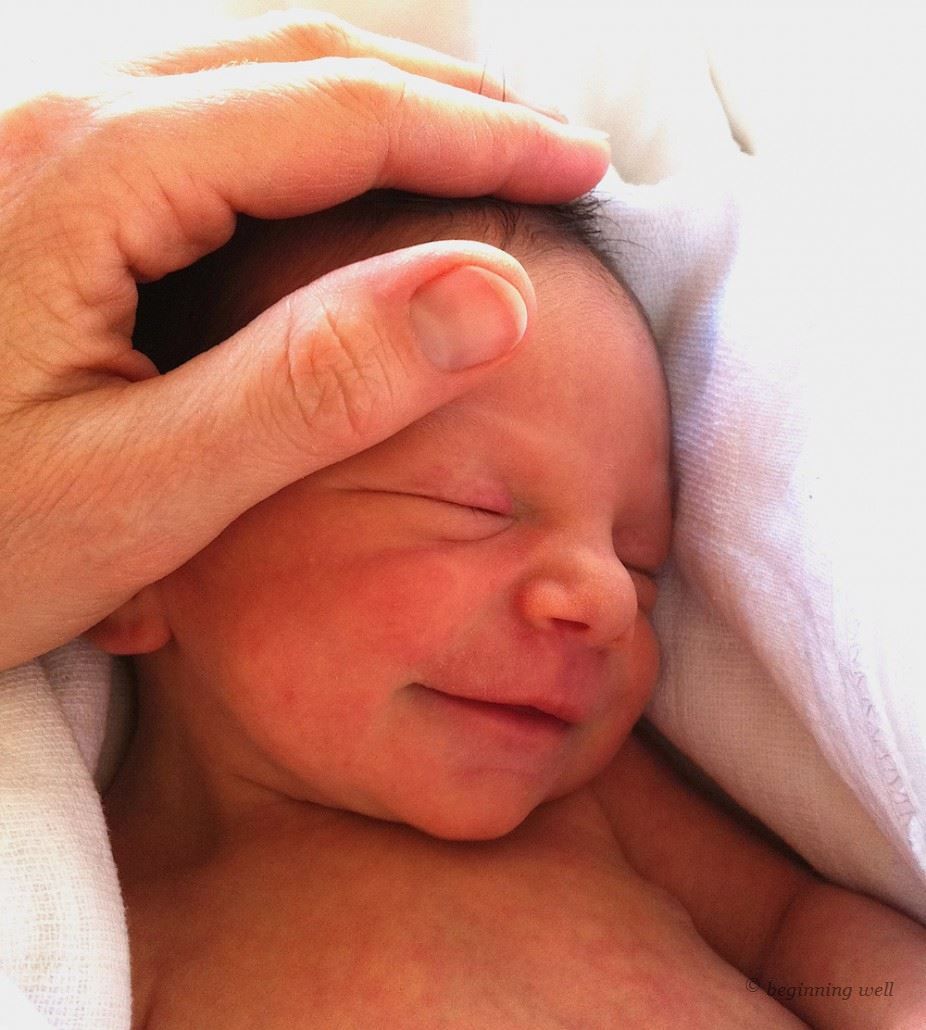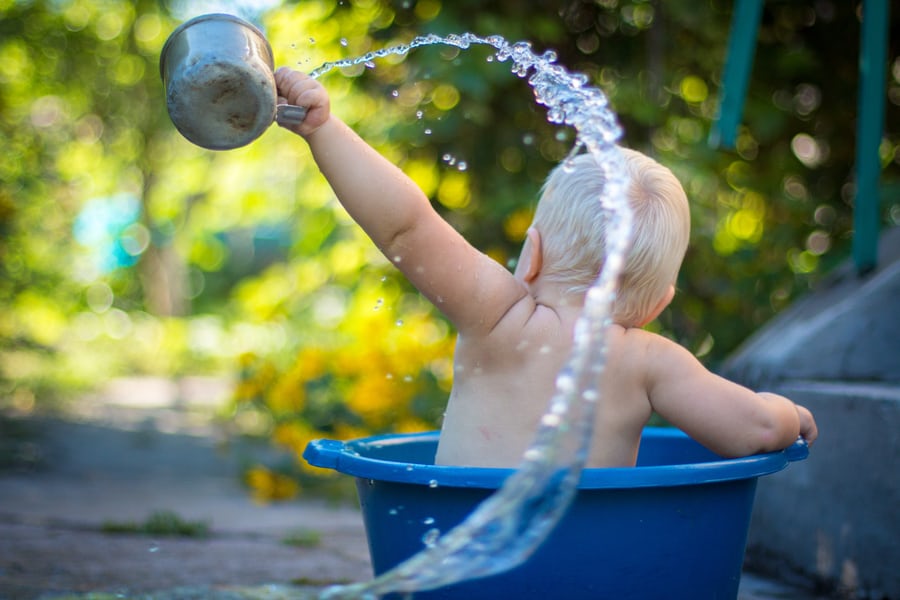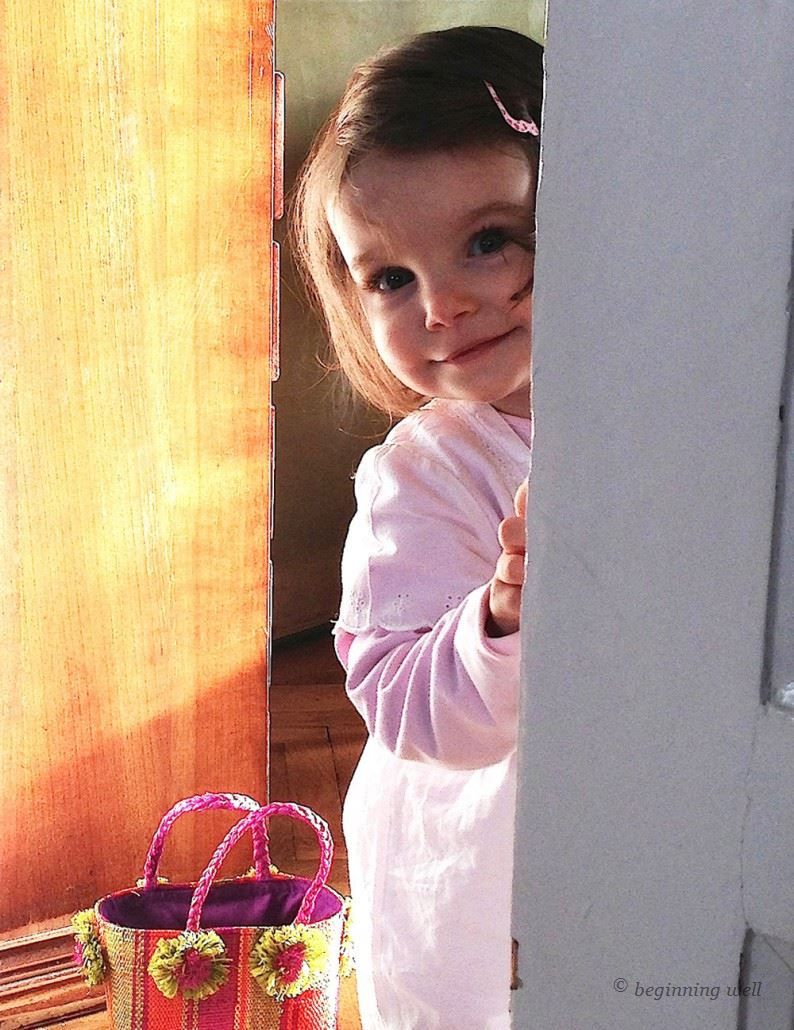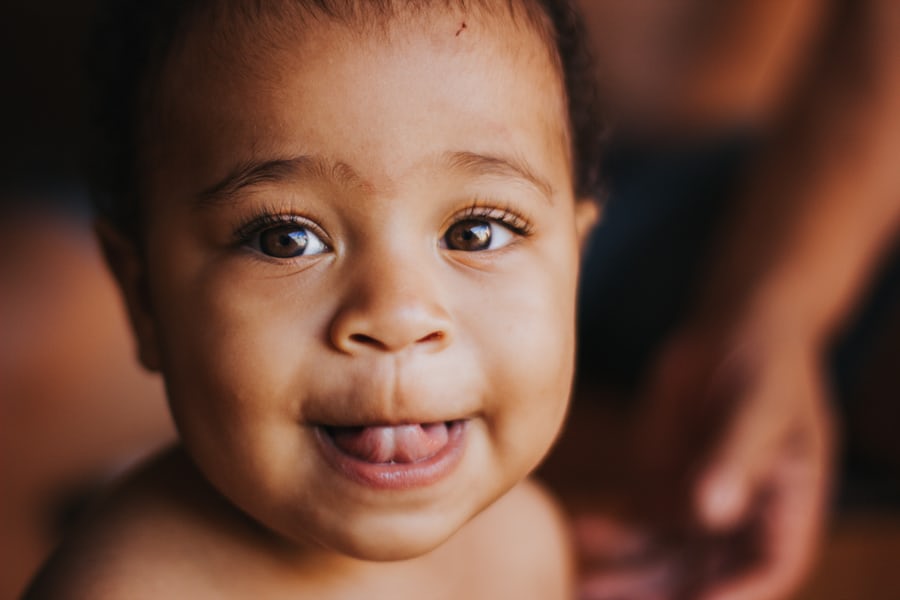____________
What is
beginning well
about?
<

>
_____________
An empathetic and respectful relationship from the beginning
The greatest wish of every mother and father is to give their child the best from the very beginning.
beginning well wants to give you suggestions for being with your child from 0-3 years old so that everybody feels good and life together is as respectful, authentic and empathetic as possible and especially so that there is plenty of happiness. If the child is content, the parents can mostly be satisfied too.
How this can be achieved depends to a great extent on one’s attitude and the way in which the many requirements and questions in everyday life with your child can be met and answered.
____________
Practical questions parents often ask
What can I do when my baby cries a lot and the nights are exhausting?
When will my child start sitting up, crawling and walking?
Is my child developing properly and quickly enough?
What does my child need for playing and what does he or she learn from it?
How much encouragement is necessary and how much should my child be left undisturbed?
What should I do when my child wants something different from me?
Must there be power struggles?
When are limits appropriate and how should I set them?
How can I be as patient as possible with my child, even in moments of stress?
The founders (“we”) of beginning well would like to make available our many years of experience that have proven helpful in everyday life with children and considerably eased the process of being together. We are aware that our experiences are not universally valid and we do not want them to be understood as prescriptions.
Ultimately, one can only find out for oneself what is appropriate in one’s life situation and for one’s child.
____________
Pedagogical approach
We predominantly orientate ourselves on the developmental theories of the Hungarian pediatrician Emmi Pikler (1902 – 1984) and the Waldorf education of Rudolf Steiner (1861 – 1925).
Furthermore beginning well will also publish other empirical findings and research results on individual themes. The basis of all the topics addressed here is an appreciative, understanding attitude towards the child and the wish to create the best conditions for the child’s mental, emotional and physical development.
a

a
Even the best pedagogical approach can only help to a certain extent on its own. It is important that you feel authentic and can develop a good relationship with your child. For more about our guiding practices, please click here…
____________
None of us
can do
everything “right”
If things at home with you are somewhat different to how things are described here on the website and if you start doubting whether you are doing everything “right”, please do not dwell too long on your doubts. Both you and your child will have a good reason why situations turn out differently, why your child shows other reactions or perhaps resistance or why she develops different capabilities etc.
Value your great efforts and your loving thoughts about your child. If everything only worked according to typical ideals, you and your child could learn nothing from one another. Perhaps special talents even develop from the conscious handling of supposed weaknesses.
____________
Awareness
of how children
experience the world
It is our special concern to raise awareness of how children experience themselves and the world around them. We want to suggest how you can experience and get to know your child better in order to find out what she needs from you at any moment. From the beginning babies notice much more than we as adults generally think. They already react to the smallest stimuli or changes of mood around them.
It happens so easily that something is done with a child without first looking to see what she is doing at the moment and how she is feeling. It is not normal to tell a child what is about to happen.
But a small child also wants to be treated with empathy, care and respect – long before beginning to speak and understand us cognitively. This means that the child is accepted as he is, that demands are not made that are beyond the child’s stage of development, and that the child is given the opportunity to build self-confidence so that he can later live a fulfilled life.
We can keep asking ourselves how we would like to be treated. If we are conscious of this, we can see that the way babies and toddlers are treated is often very different. If you want to respect the individuality of your child, new approaches and unconventional methods are sometimes needed but perhaps also just the rediscovery of things that are self-evident but have been forgotten. For more about the founders, please click here…
____________
beginning well
can be further developed
with you
a

a
The subjects we have dealt with so far are just a beginning and others can follow. If you let us know which articles you have found helpful or if you feel something is missing, we will be pleased to incorporate your feedback.
As soon as we have the resources we also want to offer you the chance to publish your comments, thoughts and experiences on particular subjects and share them with others.
Together with you, we want to develop beginning well into an online community that gives helpful stimulus to as many parents as possible and other interested people for a deep relationship with a growing child and a fulfilled parenthood.
We would like to express our heartfelt thanks to everyone who has so far contributed valuable content to beginning well: Dr. Paula Bleckmann (preventive medicine and computer addiction researcher, Germany), Jesper Juul, (family therapist and conflict advisor, Denmark), Prof. Dr. Gordon Neufeld (developmental psychologist, Canada), Dr. Wolfgang Schaller (pediatrician, Austria), Prof. Dr. Manfred Spitzer, (brain researcher and psychologist, Germany) and Anna Tardos (psychologist, Hungary).
____________
Support
from
you
This website has so far been set up with the voluntary work of the founders. However, we rely on donations for further development. We consciously decided against charging a fee for use of the website because we want as many people as possible to be able to benefit from the suggestions made here. The contents of the site should be freely accessible for everyone. In addition, we will also do without advertising that we do not regard as worthwhile in this context.
We rely on people who find the content of beginning well important to make a donation that they find appropriate. For more about donating, please click here…
We are looking forward to further developing beginning well together and wish you much joy with your child, as well as serenity and humor in this so formative period.
Pia Dögl, Elke Maria Rischke, Ute Strub
(Founders of beginning well)
____________
From now on you can find how-to videos such as Daily Care With Empathy also on our beginning well YouTube Channel – Be sure to subscribe.
____________
Articles in
alphabetical
order
A baby’s sleeping and waking phases
All mine! When does a child develop social skills?
Being more conscious of your own needs as a mother or father
Bottle feeding or breastfeeding – a deep and respectful relationship
Can a child be provocative?
Changing diapers standing up: how does that work?
Crying: what can help my baby?
Dealing with conflicts
Development of the imagination: how do children experience the world differently?
Eating at the family dining table: from when does it make sense?
Exploring independently instead of rational explanations
Give me patience: but quick! What helps me to remain patient in stressful situations?
How do I deal with my child’s growing self-will?
Introducing solid food: getting to know your baby’s favourites
Media consumption in early childhood and its effects
Motor development until sitting up unaided
Motor development until walking freely, climbing etc.
On holistic learning: does a child depend on explanations?
Pikler pedagogy: about respectful and empathetic care, free play and autonomous movement development
Play in the first year: what does a child need to be able to concentrate on play?
Play in the second year: what toys make sense?
Play in the third year: what does a child learn from it?
Play materials that set creativity free
Respectful and empathetic care: what is that?
Setting limits instead of punishing
Sleeping: feeling safe and sound
Table manners: example and imitation
The development of speech: from babbling to the first words
The first clothes and other things: what is needed and what makes sense?
The “terrible twos”: understanding your child’s behaviour
Waldorf pedagogy
Weaning time and solid food
What can I do if my child behaves aggressively?
What does my baby already perceive from the first day?
When and how does a relationship come about?
____________
Who designs the
beginning well
pages?
Read more…
____________
The pedagogical
background of
beginning well
Read more…
____________
You would like
to register with
beginning well?
a

Read more…
Visit us
on
Facebook at:
<
www.facebook.com/beginningwell.org
Like and share with friends and family.
